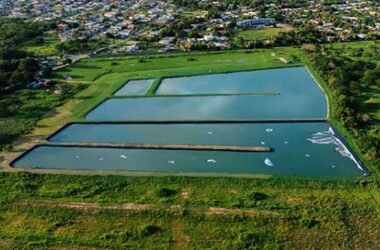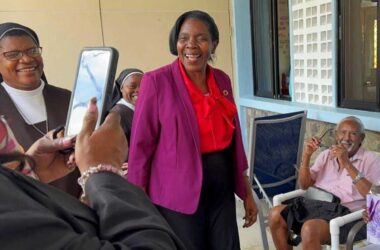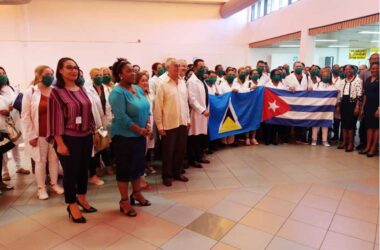Monitoring medicines quality along the supply chain and detecting substandard, or falsified products are even more critical now, due to the impact of the COVID-19 pandemic on supply chains. Accordingly, the need to ensure standards are maintained for medicines used in the treatment of diseases including COVID-19 has been recognised by CARPHA.
Market surveillance and control are essential regulatory functions of national medicines regulatory authorities and procurement bodies to ensure the good quality of medicines placed and available on the market and their compliance with applicable quality, safety, and efficacy criteria. (WHO).
The CARPHA Medicines Quality Control and Surveillance Department (MQCSD), located in Jamaica, is the regional medicines quality control laboratory and is accredited to the ISO/IEC 17025. The MQCSD analyses medicines on behalf of CARPHA Member States (CMS) to verify their compliance to applicable international standards through its post market surveillance programme for medicines or on request based on CMS regulatory needs. The MQCSD also provides technical, advisory and quality management support to the four national medicines quality control laboratories in the Caribbean. This contributes to the strengthening of regulatory systems that ensure the quality, safety and efficacy of medicines used within Caribbean countries.
The MQCSD hosted a webinar and meeting on Risk-based Post Market Surveillance for Monitoring the Quality of Medicines using Laboratory Testing. The event took place on December 7, 2021.
The webinar highlighted the importance of post-market surveillance of medicines, which has become more critical due to the impact of the COVID-19 pandemic on supply chains and the need to ensure quality standards are maintained for medicines used in the treatment of diseases including COVID-19. Recommended best practices for the utilisation of laboratory testing to assess the quality of medicines by the MQCSD and CARPHA Member States were also on the agenda.
The online event also presented the work of the MQCSD and its contribution to medicines regulatory activities and health systems in CMS, in accordance with recommendations made by the Pan American Health Organization, World Health Organization, and the MQCSD Post-market surveillance Guide for Small Island Developing States.
A total of 37 participants from 13 CMS attended, including representation from the national medicines regulatory authorities and procurement bodies that participate in MQCSD’s post market surveillance (PMS) programme, drug inspectors, Chief Pharmacists, and the national medicines quality control laboratories in the Region.







![Amy Stephen [Photo credit: Community Tourism Agency]](https://thevoiceslu.com/wp-content/uploads/2026/01/Amy-Stephen-feat-380x250.jpg)





